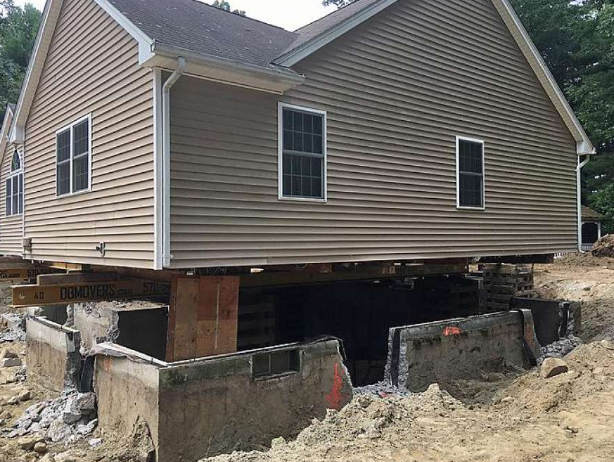If you’re a homeowner and have recently noticed any shifts, cracks, bowing walls, or other signs of foundation issues in your home, then you know it isn’t something to ignore. Foundation repair can be expensive and emotionally taxing, but most importantly good repairs will help protect your family from further damage by fixing any existing problems. Knowing what to do when faced with the need for foundation repair can ensure that you protect your home’s value and get the best outcome possible. In this blog post we offer up seven tips to remember when needing foundation repair work done on your house—so read on!
1. Know Your Soil:
Before beginning any repair work, it’s important to understand the type of soil around your house. Different soil types require different types of foundations and provide different levels of support. Clay soils expand with moisture and contract in dry periods, leading to cracks in foundations due to movement beneath them. Sandy soil moves less than clay, but still enough that special precautions may be necessary when constructing foundations on these types of soils. Knowing this information will help you determine what kind of repair is needed for your foundation and which materials would best suit your situation.
2. Inspect Your Foundation Regularly:
It is incredibly important for homeowners to regularly inspect their foundation for any signs of needed repair. Cracks and other structural damage can be signs that your foundation requires some attention. As homes age, the soil surrounding them may shift and cause cracks or even destabilize the entire structure. Foundation problems can lead to a variety of issues including sagging floors, sticking doors or windows, cracked drywall, and even leaks in the basement. To prevent these costly repairs it is essential to inspect your foundation every year and take steps to monitor any changes that occur. If repairs are needed it is best to do them as soon as possible in order to avoid bigger problems down the road. In addition, homeowners should also consider weatherproofing measures such as waterproofing their basement walls and floors in order to reduce the chances of water seeping into the house through cracks in the foundation. By inspecting your foundation each year you can detect potential problems early on and save yourself both time and money in the long run.
3. Get Professional Help:
It is essential for homeowners to seek out professional help when they notice any signs of foundation damage. The foundation supports the entire house, so it’s important that repairs are made promptly and correctly. Foundation repair specialists have the experience and expertise needed to quickly detect problems and provide solutions that will keep your home safe. Not only can they identify cracked walls or sloping floors, but they can also discover hidden problems beneath the surface that could cause more serious issues down the line. Professional foundation repair experts typically use a variety of techniques, including shoring up foundations with steel beams, using hydraulic jacks to lift foundations, and injecting concrete into voids caused by erosion or water damage. They may also replace damaged drainage systems and even waterproof basements. By taking steps to repair your home’s foundation early on, you can save money in the long run by avoiding costly repairs later on. Additionally, proper foundation repair will also protect your home’s resale value since a strong foundation is an important factor to prospective buyers. In order to make sure that these repairs are done right, it’s important to have them handled by an experienced professional who knows how to properly asses your property and provide you with quality services that meet local building codes and safety standards.
4. Be Aware of Methods Used:
Different techniques exist for repairing different types of foundations; knowing which method works best for specific situations is essential for getting quality results from repair jobs that last long-term without breaking your budget . For instance, slab-jacking utilizes hydraulic pumps to fill voids underneath slabs caused by erosion or shifting soils; helical piers can be used when structures start sinking into unstable soils due to erosion; while wall anchors can strengthen leaning basement walls affected by hydrostatic pressure below them among other things depending on how severe the damage is .
5. Choose Quality Materials:
When selecting materials for a foundation repair job, always opt quality over price when possible – cheap materials are prone to break over time requiring replacement faster than better-quality materials would ; saving money upfront isn’t worth spending more later on additional repairs down the line so don’t skimp out!
6. Check Insurance Coverage:
Depending on where you live , some homeowners insurance plans cover certain damages caused by natural elements , so it’s important to check with your insurance provider what kind of coverage applies in case something happens during a repair job . In addition , many local governments offer tax breaks related to home improvement projects including those related with fixing foundations , so make sure you explore all options available before paying out-of-pocket expenses .
7. Keep Records Of Work Done:
Once a contractor completes his work make sure he provides detailed records outlining what was done during his visit , along with tips on how best maintain its structural stability over time . With this information handy , any future problems will be quickly identified and resolved before they turn into bigger issues . Additionally , having this documentation can prove useful if you plan selling property down the line as potential buyers will feel more confident since they’ll have records showing quality work was done already .


















